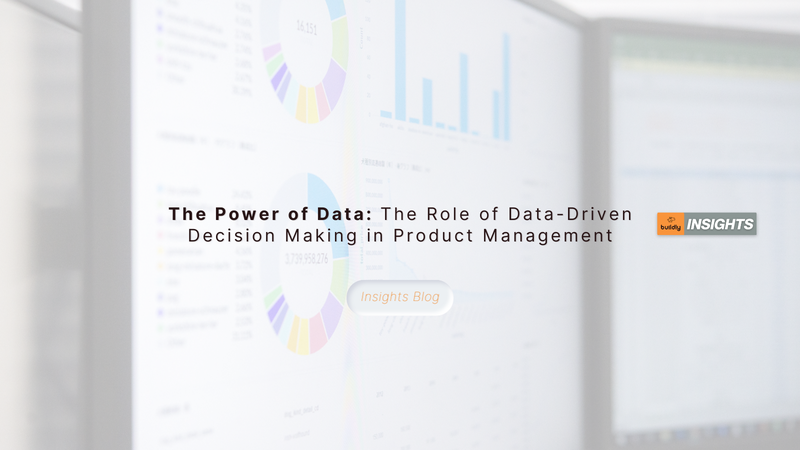The Power of Data: The Role of Data-Driven Decision Making in Product Management

- admin
- July 11, 2023
Product managers face the difficult task of making crucial decisions that can directly affect the success or failure of their products. The days of only depending on intuition and gut feelings are long gone. Introducing data-driven decision making, a strategy method for directing the operations of product management by utilizing data and analytics. In this post, we will discuss the value of data-driven decision making in product management and how it enables product managers to make defensible decisions that promote growth and customer happiness.
- Utilizing Data's Potential:
To inform product management strategies, data-driven decision making requires gathering, analyzing, and interpreting relevant information. Product managers are able to get past preconceptions and make well-informed decisions supported by verifiable data thanks to it. Data-driven insights into user behavior, market trends, and product performance give product managers the ability to confidently negotiate the challenging environment.
- Understanding Customer Needs:
Understanding your target audience's wants and preferences is the first step in making data-driven decisions. Product managers can find patterns, trends, and pain areas by studying user data. To acquire a thorough grasp of what customers really want, they can perform user surveys, monitor user activity, and use customer feedback. This data-driven methodology makes sure that product development efforts are in line with customer expectations, which boosts client loyalty and happiness.
- Driving Product Roadmaps:
Product roadmaps are shaped by data-driven decision making, which is a key factor in this process. Product managers are able to determine the most important features and assign them the highest priority by examining data on user interaction, feature usage, and customer feedback. This enables the creation of products that offer users the greatest possible value while using the fewest resources possible for less important aspects. Product teams can ultimately concentrate their efforts on providing the appropriate features at the right time with the aid of data-driven roadmaps.
- Validating Hypotheses and Assumptions:
During the product development process, theories and assumptions are frequently prevalent. Making data-driven decisions gives you the ability to confirm or deny these presumptions. Product specialists can, for instance, compare the effectiveness of two or more iterations of a product or feature using A/B testing. Also, they can choose which design, copy, or feature version performs better using data-backed judgments by monitoring user behavior and metrics, resulting in optimized product experiences.
- Iterative Improvement and Optimization:
The idea of continual improvement is essential to data-driven decision making. Product managers can pinpoint areas for improvement and implement iterative improvements through data analysis. Data-driven method offers insights that direct gradual improvements, whether it's enhancing user onboarding, optimizing conversion funnels, or enhancing user interfaces. This iterative process promotes a learning culture and guarantees that goods develop to meet the constantly changing needs of customers and the market.
- Monitoring Product Performance:
Monitoring and evaluating product performance are included in data-driven decision making, which goes beyond the development phase. Product managers can evaluate the success of their products and gauge their influence by tracking key performance indicators (KPIs) and performing post-launch analysis. The identification of growth possibilities, course corrections, and prompt interventions are all made possible by this data-driven methodology.
Product managers that embrace data-driven decision making gain a competitive advantage in a time when data has taken on a vital role in business operations. They may make wise decisions, promote customer-centric innovation, and create products that appeal to their target market by utilizing the power of data. Product specialists can confidently negotiate uncertainty, continuously enhance their products, and ultimately provide outstanding value thanks to this method. The capacity to successfully use data will become more and more important as the product management landscape changes, reiterating the significance of data-driven decision making in creating successful products.

